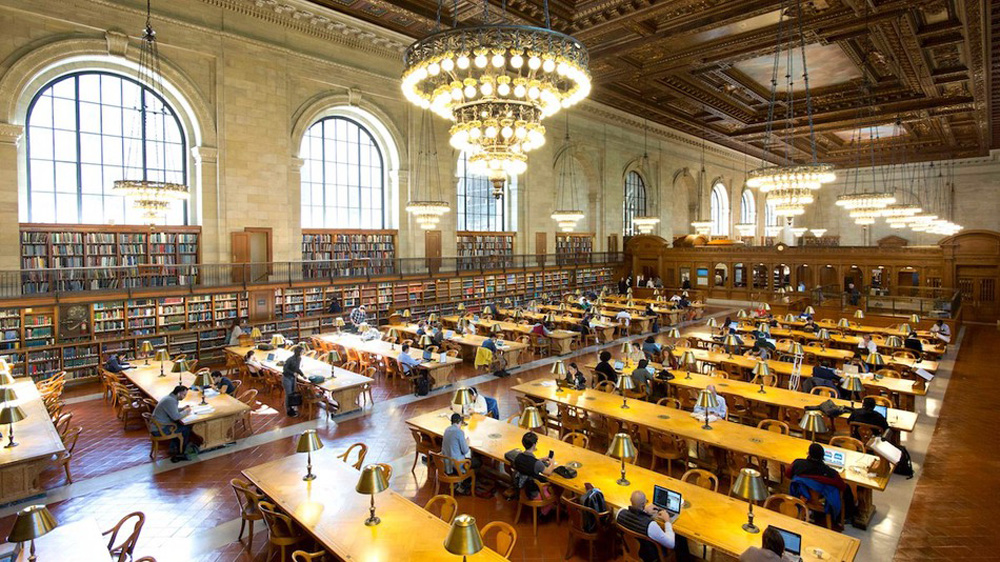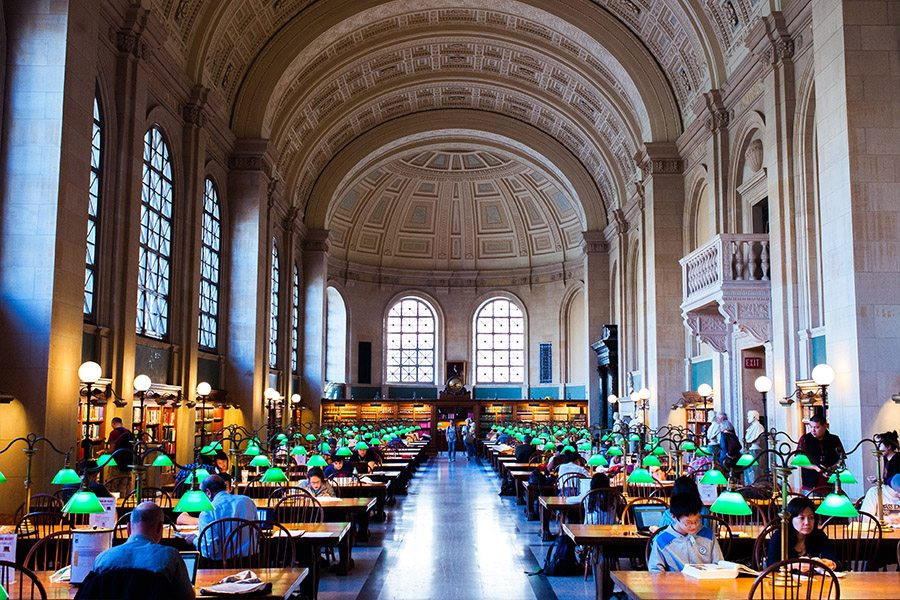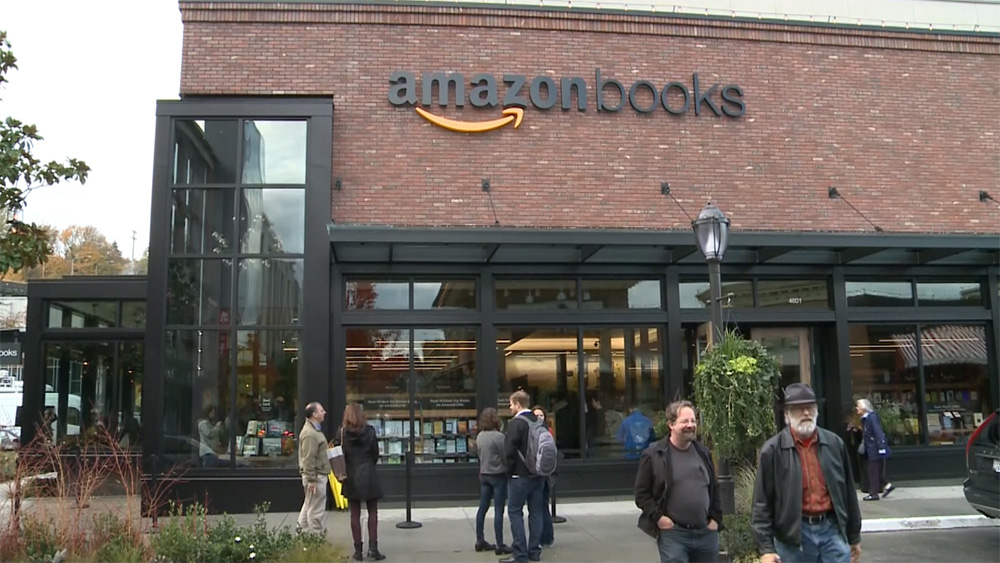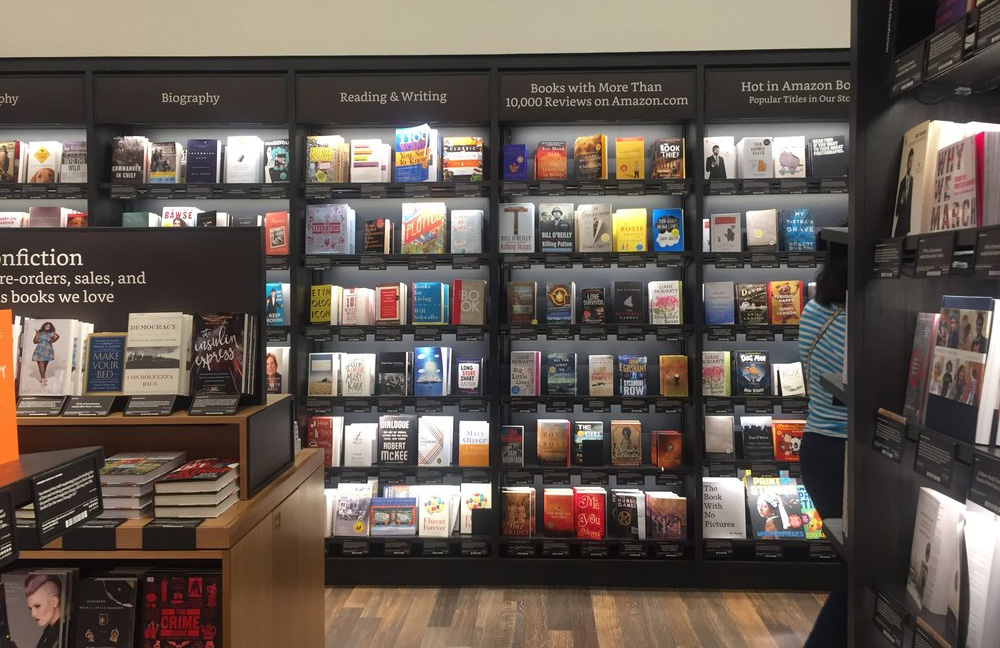In America, they suggested replacing all libraries with Amazon hubs. The public is indignant

Every working American spends about $ 500 a year on supporting libraries that he does not use. This is despite the fact that federal funding for libraries has declined by 50% over the past decade. But all this money can be saved, and in parallel - to improve the quality of service.
What can replace public libraries? There is a radical proposal: Amazon Books. A network of online bookstores with almost unlimited support of the Internet giant. For Amazon, this is a matter of principle: the company was founded with the idea of expanding access to books for people. But the American Internet users who have heard about such an idea, to put it mildly, are not delighted with it.
Argument Against Libraries
In America, more than 119 thousand libraries. Most of them, almost 100 thousand, are located in schools. But 19 thousand more are separate buildings for public access, financed by the state. They must be maintained in proper condition (repair of one Boston library, completed in 2016, cost $ 78 million), buy books, pay content to librarians and security guards ... Support for some large libraries costs $ 75- $ 135 million a year (for example, George Bush and Barack Obama’s presidential libraries, which are regularly criticized for their "Tranzhyrstvo" and "uselessness"). Just a year on the library of the United States spends about $ 60 billion - three times more than the NASA budget. Many of these expenses, according to economists, are lowered to nowhere, and society could get more returns if the money went to other needs.

Boston Library
His views on this topic in Forbes magazine were expressed by Panos Murdukutas, a professor of economics at Long Island University in New York. And he has not only complaints about libraries, but also a (rather radical) way in which the situation can be resolved. In his opinion, everything that the state disposes inefficiently should be transferred to private companies. And since libraries, for the most part, are unprofitable, it’s not worth holding on to them. And Amazon can take over their function. Panos presented his arguments in the article “Amazon must replace local libraries with a view to saving taxpayers money.”
To do this, according to Panos, will not be as difficult as it seems. It is enough to open Amazon Books for people living in the area, and as the demand increases the number of such points in the country. A private company will handle resources much more carefully than the state machine, and will not open unnecessary libraries where no one uses them.

Amazon Books already offers all the activities traditionally associated with libraries. They can read the book you are interested in, take a magazine or newspaper, freely go to the Internet. The seller will recommend what to read for your interests. Amazon, according to rumors, also plans to add the ability to rent books. Amazon Books went offline quite recently, at the end of 2015, and so far there are few branches, 13. But among them there are very large, not less than a public library, even with a cafe inside. And plans to open at least another 400 points. If the state libraries are abandoned, the number of such branches will undoubtedly increase many times. And taxpayers' money will go to other things.
Panos Murdukutas says that many of the traditional functions of libraries are already carried out by other organizations. Books are mostly read in electronic format, information is received on the Web, and for meeting with a book or going online, for example, go to the nearest Starbucks. The Starbucks loyalty card is now used more often by Americans than the library user’s card.

In the past, libraries leased DVDs for viewing. This feature also disappeared - thanks to the development of services like Netflix and Amazon Prime. At the same time, every year, a working American is forced to give $ 495 to support local libraries - which is more expensive than subscribing to Netflix, extracting seven weekly journals and buying forty e-books combined. For what he does not actually use.
The question remains, will Amazon agree? And the answer - of course! This is the idea on which the entire corporation is built: at first, Jeff Bezos was selling only books, and his goal was to help provide books to every American home. Even if the company loses money on it, Amazon has enough of it. And it will not lose them: even on one news that Forbes has published such a proposal, Amazon shares have gone up. The more a company is built into American culture, the stronger its condition. This is a win-win. One move and saves a lot of US money, and gives Amazon a good support, showing that it still has, where to grow.
Storm in response
The offer of Panos found a warm response from the American public. But, apparently, not what he expected. In response, he appeared the most discussed topic on “Reddit” and tens of thousands of “reviews” on Twitter. The author of the material sent curses, and Forbes accused of engaging and promoting the "ideas of capitalists." "The last thing America needs now is proposals that will separate 1% from the rest of the population even more."

To begin with, Starbucks and Amazon Books do not give books for use free of charge. And although people stopped renting discs for watching movies and TV shows, libraries now have the possibility of free streaming audio and video from many online services - for those who cannot allow them to subscribe. In large libraries, users are even given free passes to museums so that those who are interested in history or culture can continue to strengthen their knowledge. Therefore, most Americans still consider libraries to be useful institutions (especially, surprisingly, millennials). In Ohio, for example, in 2017, 94% voted to increase funding for their libraries.
Librarians reacted quite harshly to the idea of the LIU economist, arguing that a private company would never put people in priority as much as a state structure could. Amanda Oliver, a librarian from Washington, writes:
Spend one day in your city library. See who uses its services. These are not just people calling for free books. These are businessmen, students, doctors, schoolchildren, the unemployed, and immigrants. The library is one of the last places in our society, where everyone is treated with the dignity and respect he deserves.
This is Wi-Fi. And translators. And kindness. These are librarians who help fill out free housing forms or citizenship documents. This shelter, if it's cold, heat or rain. This is access to newspapers or simple conversation. This is all about basic human needs.
On Twitter and Reddit, they write as arguments that a person has access to self-education through libraries. Once so educated Abraham Lincoln. This is the path for the poorest, one of the last opportunities to do something with your position. Erbear , for example, tells how he was able to open a small business through free advice from the library. And McMillen learned programming from books borrowed in the library. At his school there was neither computers, nor CS class, but he learned, and now 9 years working in Google.

There were (slightly conspiracy) theories of who and why promotes such ideas to the people. Many feel behind this the invisible hand of Amazon, who wants to grab another part of the market. San Francisco Library wrote in the "Twitter" and that "It is possible, the Forbes just do not like it, you can download them from our magazine free library card."
And Professor Panos Murdukutas himself was accused of stock manipulation. Like, if he invested a serious amount, and even with his shoulder, in Amazon’s shares a couple of hours before the release of his article, he could have hit the big score, and maybe that was the idea. We also noticed that in his other materials he is in favor of Bitcoin - perhaps by investing in it just before the publication of his material in Forbes.

As a result, there were so many critics that Forbes magazine had to delete an article (which happens very rarely). True, the Internet remembers everything . The author himself went to the bottom, fearing retribution "Reddit", and just in case deleted his Twitter. Internet users celebrate victory .
But the question whether modern computerized society needs physical libraries and what alternatives there are for them remains open. And it will probably be raised more than once by economists.
Do you need libraries? How often do you go to them, and do you think that they still perform an important social function?


